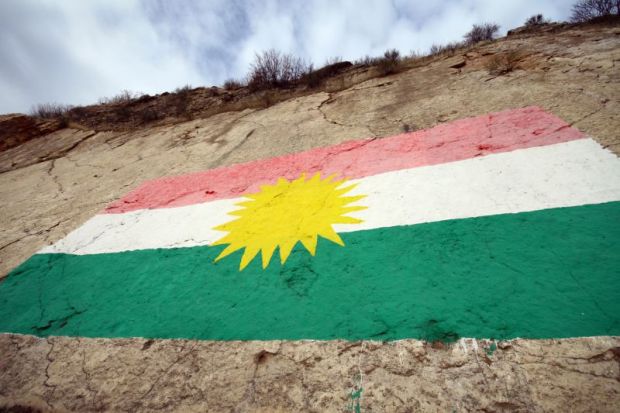The Kurdistan Region’s political and economic stability has allowed it to make significant progress in developing its higher education sector since the region’s autonomy was established in the wake of the Iraq war in 1991 and and attained constitutional recognition as a state within federal Iraq in 2005.
The region’s Ministry of Higher Education has implemented policies to ensure equal access to its 15 public and 17 private universities for all high school graduates. Already, 57 per cent of the region’s 252,000 undergraduates in public universities are female.
The progress is in part thanks to the Kurdistan Regional Government and its efforts to leverage the help of the international community. For instance, its Human Capacity Development Programme has, since 2010, provided about 4,000 scholarships to talented students from the region to pursue master’s and doctoral degrees at centres of excellence abroad. Returning scholars are now boosting human capital in many sectors in the Kurdistan Region, including holding senior positions in universities and playing major roles in higher education reform.
In addition, serious investments have been made in international staff and student exchange, dual-degree programmes and joint research projects, including via the European Union’s Erasmus schemes. One of the most significant internationalisation projects is the Split-Site PhD Programme. Begun in 2012, this provides doctoral students at local universities with two supervisors, one local and one international. After completing their first year in the Kurdistan Region, students travel to the universities where their international supervisors are based and spend about a year there before returning home to write up their theses and to prepare for their vivas.
Another aspect of the Kurdistan Region’s commitment to international standards is its decision to embrace the European Bologna Process, with a view to aligning with the European Higher Education Area. The European Credit Transfer System has been adopted, the national qualification framework has been reshaped and quality assurance standards and guidelines have been implemented. The implementation of the Bologna Process, and the accompanying boost in quality and transparency, will help student mobility and employability, as well as increase the competitiveness of Kurdistan’s higher education institutions globally.
Pedagogical reform has also been undertaken. Experts from Finland’s Häme University of Applied Sciences have trained 51 professors, representing universities from across the Kurdistan Region, on student-centred learning and active pedagogy, introducing them to concepts such as project-, problem- and phenomenon-based learning, as well as interdisciplinary education.
The project also taught the professors how to align learning outcomes, assessment, learning environments and pedagogical practices, helping them to develop curricula to meet the needs of communities and employers. The latter aspiration has also involved a focus on entrepreneurship: how to guide students to generate and evaluate new ideas, including learning from feedback. Such processes also help to develop students’ critical thinking and problem-solving skills, preparing them for the workforce.
Aligning the Kurdish higher education system with the needs of the job market and economic development is a high priority. A new project, the Industry Advisory Board, aims to help universities better connect with industry and understand the requirements of the job market through regular market surveys. This will enable universities to design flexible curricula that remain relevant to the changing job market and technological advances, producing more employable graduates. It will also help to accelerate the development of technical and vocational education.
The region’s commitment to promoting resilience, flexibility, tolerance and sustainability through inclusive, high-quality higher education will contribute to promoting a more prosperous and peaceful society that makes a positive contribution to the international community.
But the international community also needs to play a further part in realising this aspiration. In particular, the Kurdistan Region needs more help from the European Commission and European universities to implement the objectives of the Bologna Process. Assistance is most needed in capacity-building, to put the region’s universities in a better position to implement the Standards and Guidelines for Quality Assurance in the European Higher Education Area (ESG) and to secure official registration in the European Higher Education Area.
With such support, the Kurdistan Region can serve as a successful model for the rest of Iraq.
Aram Mohamad Qadir is the minister of higher education and scientific research of the Kurdistan Regional government, Iraq. Amanj A. Saeed is a advisor to the minister.
Register to continue
Why register?
- Registration is free and only takes a moment
- Once registered, you can read 3 articles a month
- Sign up for our newsletter
Subscribe
Or subscribe for unlimited access to:
- Unlimited access to news, views, insights & reviews
- Digital editions
- Digital access to THE’s university and college rankings analysis
Already registered or a current subscriber? Login








